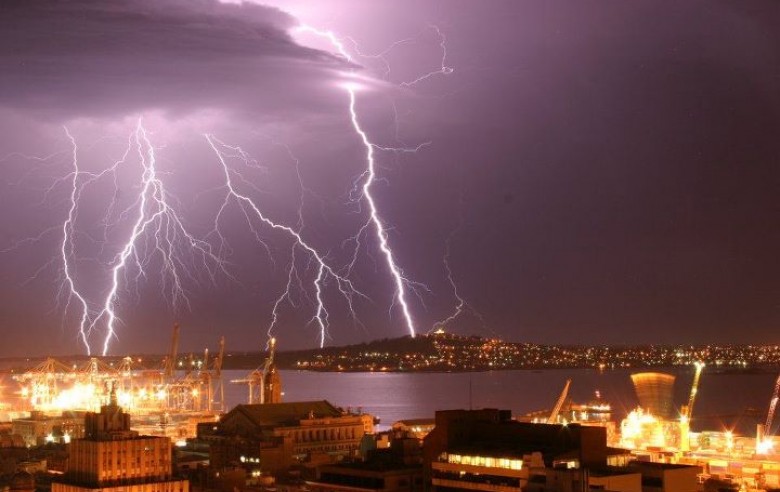Atlas vs América: Partido Retrasado
By Asmita - Aug 25, 2025
A highly anticipated Atlas vs. América soccer match faced a delay due to a thunderstorm, affecting players, fans, and event logistics. Amid uncertainty, teams adjusted strategies, fans speculated online, and staff managed safety measures. With the weather gradually improving, officials aimed to resume the game, emphasizing the need for swift adaptation post-interruption.

Tormenta eléctrica via Wikimedia commons
The highly anticipated match between ,[object Object], and ,[object Object], was set to captivate fans, but nature intervened with an unexpected twist as a powerful ,[object Object],—,[object Object],—swept over the stadium just before kickoff. Spectators filled the stands, their excitement palpable, only to watch rain lash the pitch, flashes of lightning illuminating the sky above. Officials acted swiftly in the interest of everyone’s safety, delaying the start of the match and evacuating both players and fans to covered areas. Social media quickly flooded with videos of the tempest and fans sharing their disappointment, but most supported the organizers’ decision, understanding the hazards that lightning poses in open stadiums.
Inside the teams’ locker rooms, both ,Atlas, and ,América, players faced the psychological challenge of staying focused amid uncertainty. Coaches adjusted their warm-up schedules and revised tactical plans while keeping an eye on evolving weather reports. The delay threatened to disrupt physical preparation, as warm muscles cooled and players struggled to remain mentally sharp. Physiotherapists circulated, ensuring their squads remained loose and ready to return to action at a moment’s notice. This unscripted pause heightened anticipation, with fans speculating online about how the weather might level the playing field or favor one side’s tactical setup.
Meanwhile, stadium staff hustled behind the scenes to manage the unexpected situation. Security personnel made announcements and ushered fans towards safer zones, while maintenance crews assessed the pitch for rain-induced hazards such as pooling water and slippery patches. Broadcast teams quickly altered their programming, filling the airtime with analysis, interviews, and weather updates, keeping remote viewers engaged despite the delay. Local authorities also monitored the situation closely, ready to intervene if further evacuation or medical attention became necessary.
With weather conditions gradually stabilizing, match officials began assessing when it would be safe to continue. Communication channels buzzed between referees, team representatives, and stadium authorities as they gauged lightning proximity and rainfall intensity. Updates assured fans the match would proceed when deemed secure, but there was an unspoken acknowledgment that the rhythm and energy of the evening had been irreversibly altered. As preparations to resume unfolded, both ,Atlas, and ,América, knew that adapting quickly from the forced break would be crucial in determining which club would seize the advantage once play finally began.


